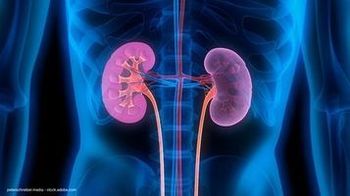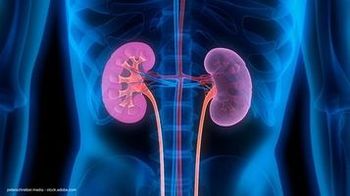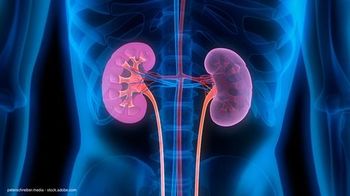
Oral agent improves survival in advanced bladder cancer patients
A drug that is commonly used to treat lung and colon cancer may prolong survival in patients with invasive bladder cancer, researchers reported at the American College of Surgeons clinical congress in Chicago.
A drug that is commonly used to treat lung and colon cancer may prolong survival in patients with invasive bladder cancer, researchers reported at the American College of Surgeons clinical congress in Chicago.
Results from the first phase II trial, conducted to test the effects of erlotinib (Tarceva) on patients with muscle-invasive bladder cancer, revealed that 16 of 25 patients were still alive 5 months after being treated with the drug before a surgical procedure, and 10 of these patients had no evidence of disease.
These survival statistics are better than those achieved with standard treatment for muscle-invasive bladder cancer, according to the research team.
"Bladder cancer is an unforgiving disease," said co-author Angela Smith, MD, of the University of North Carolina, Chapel Hill, working with Raj S. Pruthi, MD, and colleagues. "Surgery represents our best chance at controlling and curing invasive bladder cancer. But still, only 50% of patients undergoing definitive surgical therapy will experience long-term disease-free survival.
"In those patients who recur after surgery, survival benefits with standard chemotherapy are limited, and many patients ultimately succumb to the disease, often within 2 years. In our study, six patients did die of the disease, but that is much less than 50%."
After treatment with erlotinib, 75% of the patients in the clinical trial had organ-confined disease. All patients had muscle-invasive disease at the outset of the study. Following a 4-week course of oral erlotinib, 25% of the patients were pathologically free of disease and 35% were pathologically down-staged to indicate they now had superficial cancer involvement of the bladder.
"It’s too early to tell exactly what the outcome of treatment will be, especially with such a small sample size of patients in the study and lack of a control group. But these preliminary results are encouraging," Dr. Smith said.
Newsletter
Stay current with the latest urology news and practice-changing insights — sign up now for the essential updates every urologist needs.





